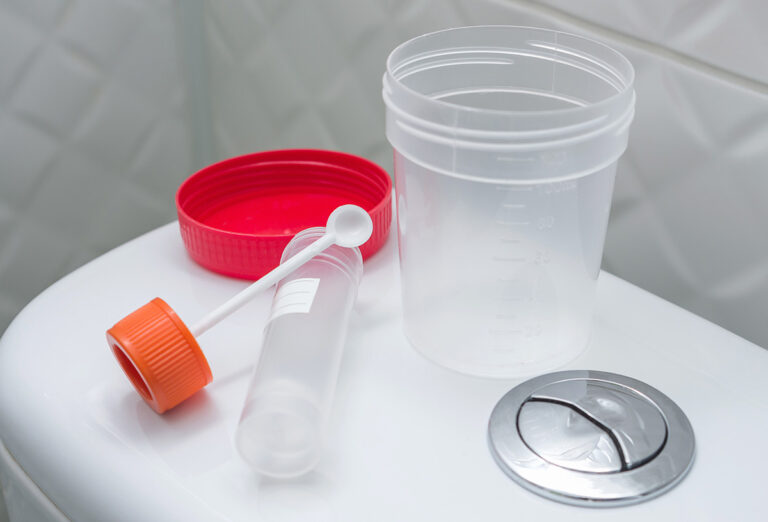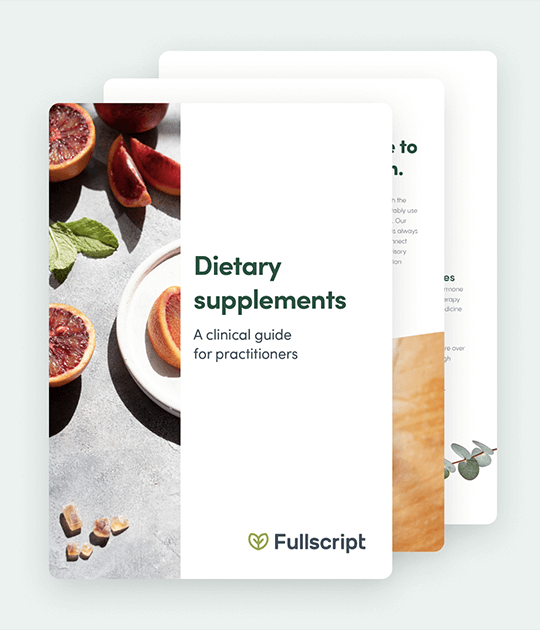
5 best breast milk supplements
Provided below is a list of galactagogue herbs that may assist in increasing breast milk.Fenugreek
Fenugreek, also known as Trigonella foenum-graecum, is a herbaceous plant native to Africa, Asia, Southern Europe, and the Mediterranean basin. Fenugreek, an aromatic plant with a maple syrup-like flavor, is used for culinary and medicinal purposes all over the world. (13)(25)(28) It is one of the most commonly suggested herbal galactagogues; it contains small golden-colored seeds that are often used to support and increase milk supply in nursing mothers. (13)(14)(28) In a network meta-analysis (NMA), a total of five studies were conducted comparing the effects of fenugreek to a placebo in 122 nursing mothers. Of the five studies, four demonstrated that the use of fenugreek remarkably enhanced milk production compared to a placebo. (19) Another study reported that of 188 nursing mothers using fenugreek as a galactagogue, 54% noticed an increase in milk supply. (8) Little is currently known about how fenugreek benefits nursing mothers in enhancing milk production. However, one theory suggests that as fenugreek may induce sweat production, the herb may also increase milk production as mammary glands, responsible for the production of breast milk, are derived from sweat glands. (28) Fenugreek comes in many forms, such as whole seeds, capsules, teas, tinctures, liquids, and powders. (6)(8)(16)(25)Fennel
Fennel, also known as Foeniculum vulgare, is a plant member of the Apiaceae family and is used for medicinal and culinary purposes. (5) Fennel has been traditionally used as a galactagogue to increase milk supply in nursing mothers. The fennel plant and seed contain a compound known as anethole. This compound acts as a phytoestrogen, which mimics the effects of estrogen in the body by binding to estrogen receptors due to their similar structure. Phytoestrogens may increase prolactin levels, which is a hormone involved in producing breast milk. (1)(3)(12)(31) Fennel is rich in minerals, trace elements, amino acids, and various vitamins, such as vitamin A, certain B vitamins, vitamin C, vitamin E, and vitamin K. Fennel also has many beneficial properties, such as anti-oxidant, anti-viral, anti-microbial, and anti-inflammatory effects. (3) Like fenugreek, fennel comes in many forms, such as whole plant, seeds, capsules, essential oils, liquids, tablets, teas, tinctures, and topical creams. (3)(12)Goat’s rue
Also known as Galega officinalis, goat’s rue, specifically its leaves and flowers, are used for therapeutic purposes, including as a galactagogue to support milk supply. (17) A 2016 experimental study found that two-third of Italian mothers participating in the study reported having an increase in milk supply. The study highlighted a subjective improvement in postpartum mental health, and the majority of mothers reported being satisfied with using the product. (27) While goat’s rue is generally tolerated in nursing mothers, a commonly reported side effect is hypoglycemia. If you are patient, be sure to speak to your healthcare practitioner before taking goat’s rue, particularly if you have been prescribed an anti-diabetic medication. (4)(17) Goat’s rue comes in capsule, tea, and tincture form. (9)Red raspberry leaf
Red raspberry leaf, also known as Rubus idaeus, is an herbal plant, primarily used by women during pregnancy to help prepare for labor. (21) However, red raspberry leaf is also used as a galactagogue to support milk production after giving birth. (26) A study including three groups, each with 22 postpartum mothers, were given red raspberry leaf herbal tea (composed of 200 mg of red raspberry leaf, other galactagogue herbs, and vitamins), a placebo, or nothing. On postpartum day three the group of mothers who received the herbal tea experienced an increase in breast milk when using an electric breast pump compared to those in the other two groups. In addition, the infants of mothers who received herbal tea had the least amount of weight loss and regained their birth weights more quickly than infants of mothers in the groups receiving a placebo or nothing. (11) Currently, most evidence supporting the use of red raspberry leaf is anecdotal, and more studies are needed to confirm its beneficial effects as a galactagogue. (11)(26) Red raspberry leaf comes in many forms, such as whole dried leaves, teas, capsules, tablets, and tinctures. (26)(29)Moringa
Moringa, also known as Moringa oleifera, belongs to the Moringaceae family of plants and grows in the tropic and subtropic regions of Asia. (2)(7)(10) It is used widely for culinary and medicinal purposes, including as a galactagogue to induce, support, and increase breast milk production in nursing mothers. (7) A study conducted in the Philippines that included nursing mothers who delivered before 37 weeks of gestation examined the effects of moringa on breast milk production. These mothers were given a 250 mg capsule of moringa twice daily or a placebo beginning three days postpartum. They were instructed to use a breast pump every four hours and record the milk volume for postpartum days three to five. The mothers receiving moringa experienced higher milk volumes on days four and five. On postpartum day five, the milk volumes of mothers who received the moringa were 320 ml compared 120 ml for the mothers receiving the placebo. (10) Moringa comes in many different forms, such as capsules, liquids, oils, teas, and powders. (10)(20)(30)
The bottom line
Although much of the evidence supporting the use of herbal galactagogues remains anecdotal and further studies are needed to uncover how galactagogue herbs work, preliminary evidence appears to support the use of these herbs to induce and increase milk supply in nursing mothers. If you are a patient, always consult your integrative healthcare practitioner to determine if galactagogue herbs are right for you.- Al-Chalabi M, Bass AN, Alsalman I. Physiology, Prolactin. . In: StatPearls . Treasure Island (FL): StatPearls Publishing; 2020 Jan-. Available from: https://www.ncbi.nlm.nih.gov/books/NBK507829/
- Anwar, F., Latif, S., Ashraf, M., & Gilani, A. H. (2006). Moringa oleifera: a food plant with multiple medicinal uses. Phytotherapy Research, 21(1), 17–25.
- Badgujar, S. B., Patel, V. V., & Bandivdekar, A. H. (2014). Foeniculum vulgare mill: A review of its botany, phytochemistry, pharmacology, contemporary application, and toxicology. BioMed Research International, 2014, 1–32.
- Bailey, C. J. (2017). Metformin: historical overview. Diabetologia, 60(9), 1566–1576.
- Barros, L., Heleno, S. A., Carvalho, A. M., & Ferreira, I. C. F. R. (2009). Systematic evaluation of the antioxidant potential of different parts of foeniculum vulgare mill. from Portugal. Food and Chemical Toxicology, 47(10), 2458–2464.
- Bumrungpert, A., Somboonpanyakul, P., Pavadhgul, P., & Thaninthranon, S. (2018). Effects of fenugreek, ginger, and turmeric supplementation on human milk volume and nutrient content in breastfeeding mothers: A randomized double-blind controlled trial. Breastfeeding Medicine, 13(10), 645–650.
- Dhongade, H. . k. u. m. a. r. . J., Paikra, B. K., & Gidwani, B. (2017). Phytochemistry and pharmacology of moringa oleifera lam. Journal of Pharmacopuncture, 20(3), 194–200.
- Drugs and Lactation Database (LactMed) . Bethesda (MD): National Library of Medicine (US); 2006-. Fenugreek. . Available from: https://www.ncbi.nlm.nih.gov/books/NBK501779/
- Drugs and Lactation Database (LactMed) . Bethesda (MD): National Library of Medicine (US); 2006-. Goat’s Rue. . Available from: https://www.ncbi.nlm.nih.gov/books/NBK501817/
- Drugs and Lactation Database (LactMed) . Bethesda (MD): National Library of Medicine (US); 2006-. Moringa. . Available from: https://www.ncbi.nlm.nih.gov/books/NBK501899/
- Drugs and Lactation Database (LactMed) . Bethesda (MD): National Library of Medicine (US); 2006-. Raspberry. . Available from: https://www.ncbi.nlm.nih.gov/books/NBK501785/
- Fennel. In: Drugs and Lactation Database (LactMed). Bethesda (MD): National Library of Medicine (US); December 3, 2018.
- Fenugreek. (2020, August). NCCIH. https://www.nccih.nih.gov/health/fenugreek
- Fenugreek. In: Drugs and Lactation Database (LactMed). Bethesda (MD): National Library of Medicine (US); July 20, 2020.
- Gatti, L. (2008). Maternal perceptions of insufficient milk supply in breastfeeding. Journal of Nursing Scholarship, 40(4), 355–363.
- Ghasemi, V., Kheirkhah, M., & Vahedi, M. (2015). The effect of herbal tea containing fenugreek seed on the signs of breast milk sufficiency in iranian girl infants. Iranian Red Crescent Medical Journal, 17(8), e21848.
- Goat’s Rue. In: Drugs and Lactation Database (LactMed). Bethesda (MD): National Library of Medicine (US); August 17, 2020.
- Grzeskowiak, L. E., Wlodek, M. E., & Geddes, D. T. (2019). What evidence do we have for pharmaceutical galactagogues in the treatment of lactation insufficiency? Nutrients, 11(5), 974.
- Khan, T. M., Wu, D. B.-C., & Dolzhenko, A. V. (2017). Effectiveness of fenugreek as a galactagogue: A network meta-analysis. Phytotherapy Research, 32(3), 402–412.
- Leone, A., Spada, A., Battezzati, A., Schiraldi, A., Aristil, J., & Bertoli, S. (2016). Moringa oleifera seeds and oil: Characteristics and uses for human health. International Journal of Molecular Sciences, 17(12), 2141.
- McFarlin, B. (1999). A national survey of herbal preparation use by nurse-midwives for labor stimulation review of the literature and recommendations for practice. Journal of Nurse-Midwifery, 44(3), 205–216.
- Mortel, M., & Mehta, S. D. (2013). Systematic review of the efficacy of herbal galactagogues. Journal of Human Lactation, 29(2), 154–162.
- Özalkaya, E., Aslandoğdu, Z., Özkoral, A., Topcuoğlu, S., & Karatekin, G. (2018). Effect of a galactagogue herbal tea on breast milk production and prolactin secretion by mothers of preterm babies. Niger J Clin Pract, 21(1), 38–42.
- Penagos Tabares, F., Bedoya Jaramillo, J. V., & Ruiz-Cortés, Z. T. (2014). Pharmacological overview of galactogogues. Veterinary Medicine International, 2014, 1–20./
- Poole, C., Bushey, B., Foster, C., Campbell, B., Willoughby, D., Kreider, R., Taylor, L., & Wilborn, C. (2010). The effects of a commercially available botanical supplement on strength, body composition, power output, and hormonal profiles in resistance-trained males. Journal of the International Society of Sports Nutrition, 7(1), 34.
- Raspberry. In: Drugs and Lactation Database (LactMed). Bethesda (MD): National Library of Medicine (US); December 3, 2018.
- Salatino, S., Giacomelli, L., Carnevali, I., & Giacomelli, E. (2017). The role of natural galactagogues during breast feeding: Focus on a galega officinalis based food supplement. Minerva Pediatr, 69(6), 531–537.
- Shawahna, R., Qiblawi, S., & Ghanayem, H. (2018). Which benefits and harms of using fenugreek as a galactagogue need to be discussed during clinical consultations? A delphi study among breastfeeding women, gynecologists, pediatricians, family physicians, lactation consultants, and pharmacists. Evidence-Based Complementary and Alternative Medicine, 2018, 1–13.
- Simpson, M., Parsons, M., Greenwood, J., & Wade, K. (2001). Raspberry leaf in pregnancy: its safety and efficacy in labor. Journal of Midwifery & Women’s Health, 46(2), 51–59.
- Sugahara, S., Chiyo, A., Fukuoka, K., Ueda, Y., Tokunaga, Y., Nishida, Y., Kinoshita, H., Matsuda, Y., Igoshi, K., Ono, M., & Yasuda, S. (2018). Unique antioxidant effects of herbal leaf tea and stem tea from moringa oleifera l. especially on superoxide anion radical generation systems. Bioscience, Biotechnology, and Biochemistry, 82(11), 1973–1984.
- Tabanca, N., Khan, S. I., Bedir, E., Annavarapu, S., Willett, K., Khan, I. A., Kirimer, N., & Baser, K. H. (2004). Estrogenic activity of isolated compounds and essential oils of pimpinella species from Turkey, evaluated using a recombinant yeast screen. Planta Medica, 70(8), 728–735.
- Vargová, Z., & Kučerová, J. A. (2018). Herbs for increasing breast-milk production. Ceska Slov Farm, 66(5), 208–219.






